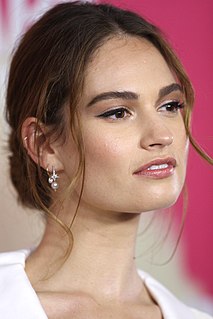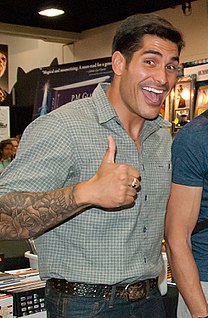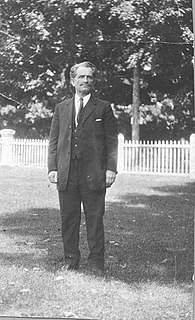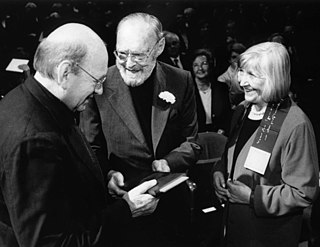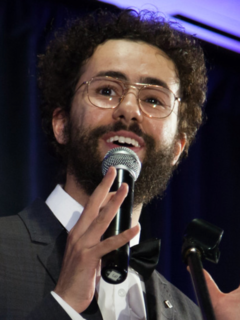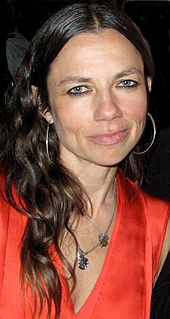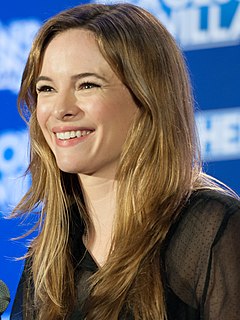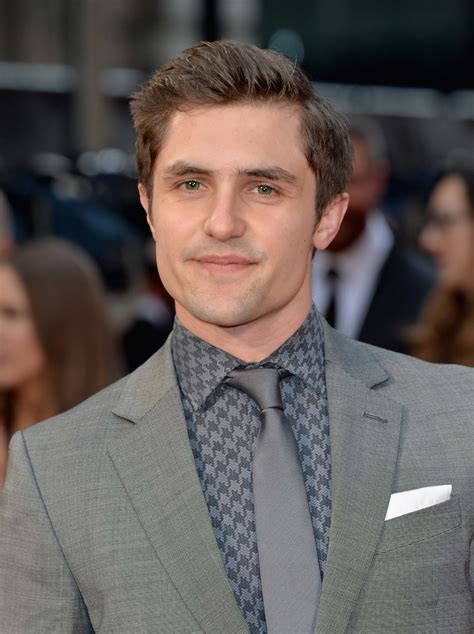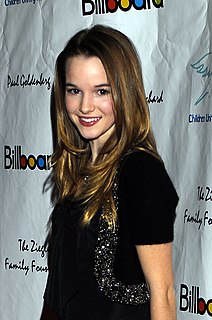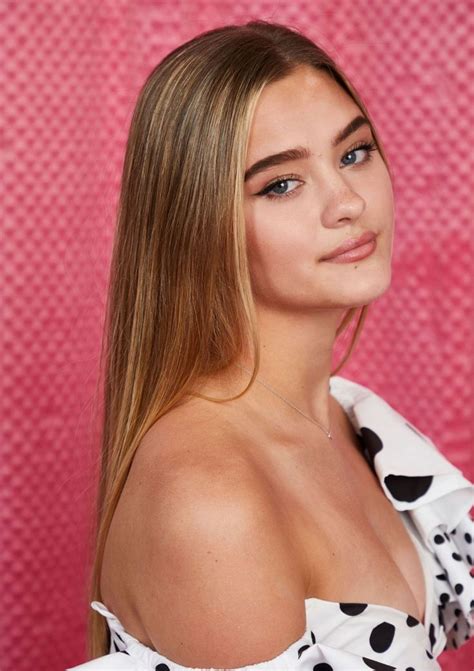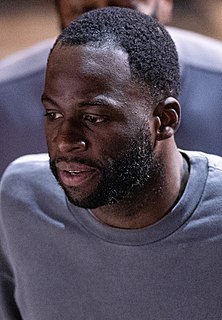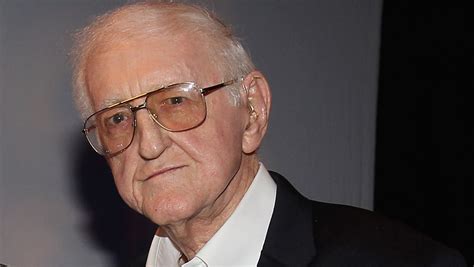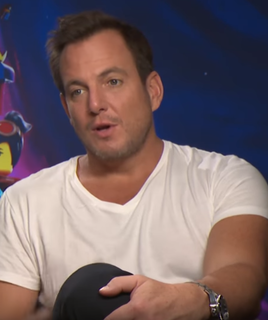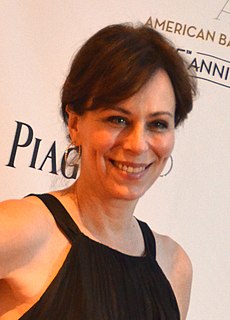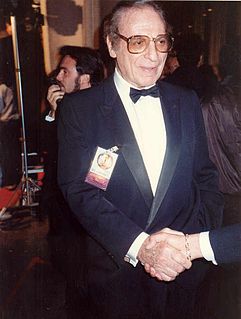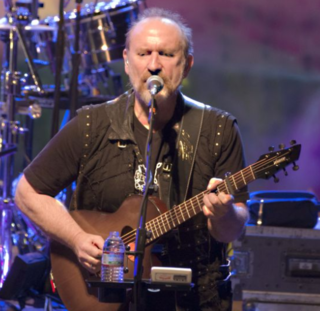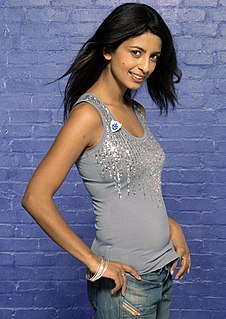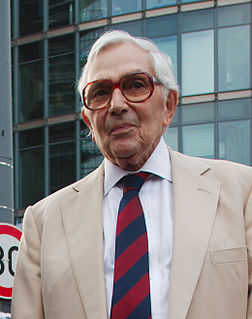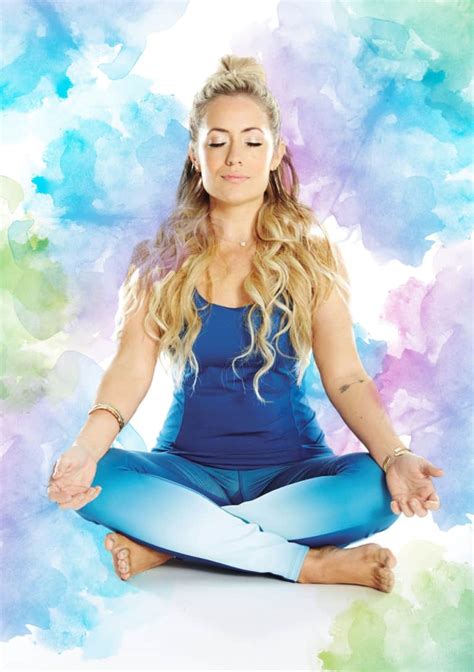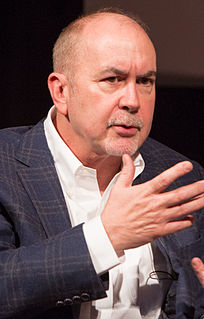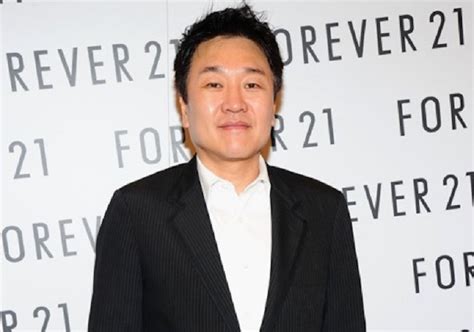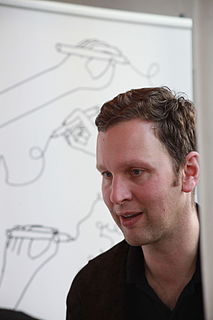Top 1200 Early 20s Quotes & Sayings - Page 18
Explore popular Early 20s quotes.
Last updated on April 22, 2025.
It took me a while to warm to the '20s costumes on 'Downton.' I love it when women accentuate their curves, and that era was all about hiding them. The shapes they wore then were in tune with female empowerment. Cutting off their hair and hiding their busts was a way of saying, 'We're equal to men!'
Men in their teenage years and even into their mid to late 20s, they're just baboons. They're really not capable of taking account of other people's feelings, being considerate, being intimate. They are essentially high on this drug of testosterone and they have very little experience and intellect. And that's a terrible combination.
Superstitions, and especially the early cultivation of religion, with its "fear of the Lord" and of unknown mysterious agencies, are especially potent in the development of the instinct of fear. Even the early cultivation of morality and conscientiousness, with their fears of right and wrong, often causes psychoneurotic states in later life. Religious, social, and moral taboos and superstitions, associated with apprehension of threatening impending evil, based on the fear instinct, form the germs of psychopathic affections.
There is no telling what a human character is. Until the test comes. To most of us the test comes early in life. A man is confronted quite soon with the necessity to stand on his own feet, to face dangers and difficulties and to take his own line of dealing with them. It may be the straight way, it may be the crooked way --- whichever it is, a man usually learns early just what he is made of.
Starting in my 20s, I couldn't wait to look like Anna Magnani or Isabelle Huppert, all these great European actresses - Charlotte Rampling - the cheekbones and the heavy lidded eyes and the dark circles under the eyes, you know. So around 42/44, I started getting a little character on my face, and I was so glad.
When I got out of undergrad, I had a degree in theater and telecommunications. My first job, I was a news reporter for the local stories for NPR. Then I was a country-western DJ. I did data entry for a yearbook company. In my mid-20s I went back to grad school at NYU, and I specialized in playwriting.
The genius of American culture and its integrity comes from fidelity to the light. Plain as day, we say. Happy as the day is long. Early to bed, early to rise. American virtues are daylight virtues: honesty, integrity, plain speech. We say yes when we mean yes and no when we mean no, and all else comes from the evil one. America presumes innocence and even the right to happiness.
The New Testament is an invaluable book, though I confess to having been slightly prejudiced against it in my very early days by the church and the Sabbath school, so that it seemed, before I read it, to be the yellowest book in the catalogue. Yet I early escaped from their meshes. It was hard to get the commentaries out of one's head and taste its true flavor. [...] It would be a poor story to be prejudiced against the Life of Christ because the book has been edited by Christians.
My whole thing is that often times when teenagers are about 18, 19, 20, 21, they get this mentality that they have to be old, they have to appear older, they can no longer be seen as a high schooler, they need to be seen as mid-20s all of a sudden even though they're only, like, 20. I'm the opposite of that.
Life flies by, and it's easy to get lost in the blur. In adolescence, it's 'How do I fit in?' In your 20s, it's 'What do I want to do?' In your 30s, 'Is this what I'm meant to do?' I think the trick is living the questions. Not worrying so much about what's ahead but rather sitting in the grey area - being OK with where you are.
I think that when I was in my 20s, I wanted to go after dramatic roles, and I didn't have a tremendous amount of success with that. I kind of backed my way into comedic parts. When you're young, you kind of take yourself seriously, and you think, like, 'People need to see what I can do.' And it's so laughable, especially with actors.
In my 20s I was so ignorant about drugs, and so naive. I mean, my band was smoking marijuana for years; I didn't even know what a joint was. And I'd never seen a line of cocaine in my life. And I don't know whether it was bravado or - OK, I'll join in. But my stupidity, I had a line of coke, and that started the whole process.
Back in my mid-20s I was told I'd never be able to have children as I wasn't having periods. Doctors tried to start up my monthly cycles, but when nothing worked, they actually offered me a hysterectomy. Without it, they said I might get ovarian cancer in the future. I chose not to have the operation, and am so glad I didn't.
My parents put me in the water very early, and also had me skiing at a very early age. They put me on skis when I was one and a half. I was fortunate to have parents who understood the importance of exposing their kids to different sports, different cultures and different activities in order to discover what we liked and what we didn't like. They didn't push us, they just gave us many things to choose from.
I was in my 30s when I quit my job and ran for Congress. So often, we're told it's OK to take these big career leaps when we're in our 20s, but we cast such an unfavorable light on those who take big risks later on in their careers or when they start families. There's enormous pressure to have it all figured out.
I went public with the alcoholism, very early on... the early '70s. Mercedes McCambridge, the actress, I think was the first recognizable person that went before Congress and talked about it, and I thought that was a good idea, to take some of the stigma away from it and say "Normal, average people can fall prey to it." So it's been public for me. I did a movie about an alcoholic. And today, you're nobody unless you've been to rehab. It seems like everybody has some kind of an addiction.
There is a kind of structure for a story that was peculiarly compelling for the radio. I thought I had invented it atom-by-atom sitting in an editing booth in Washington on M Street when I was in my 20s. Then I found out that it is one of the oldest forms of telling a story - it was the structure of a sermon.
